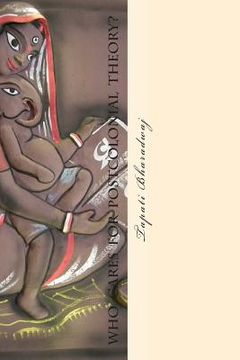Who cares for Postcolonial Theory?: The death of a literary movement. (en Inglés)
Reseña del libro "Who cares for Postcolonial Theory?: The death of a literary movement. (en Inglés)"
We belong to a generation in urban India that really is unable to fathom the need to agonize about the foreign-ness of the West as we have normalized the presence of many aspects of western civilization in our lives; it is cool to speak English with a (south) Indian slightly incomprehensible drawl, eat with your fingers and be arrogant about the poverty that still exists alongside the overt wealth that is uber-evident all around. My parents were migrants to India from Bangladesh after 1947, and I grew up listening to many linguistic variations of Bengali; by the time my children grow up, the colonial past will be as distant to them as the Mohenjo-daro-Harappa civilizations. The colonial past for them will be another phase in the history of India, as was the Islamic past. Their generation of natives won't really care about how the Orient was discursively constructed by the West and that colonial-native relationships might have been fraught with tension and notions of power. Texts which deal with the white sahib, the civilizing mission of the white Europeans versus the effeminate, natives will be as anecdotal (and amusing) as cartoon strips. They will be so far removed from the memories of British-western colonization, that the past of the previous two hundred years will become, mostly, literary-textual sources for history. My children will say, "once upon a time, the West construed us within such racialized parameters of Other/barbarian and it is amusing for us as we read them."Natives collaborated with the West as many aspects of modernity were transferred onto the colonies. In a letter that Jeremy Bentham wrote to Rammohun Roy in 1831, Bentham describes himself as having had a great influence on James Mill who dictated the histories of India through his work, The History of British India (1818); Mill is seen as a family friend, a discipline and a student of Bentham. What is of immense interest is how Bentham subtly suggests to Rammohun that his ideas have been influential in determining the future of India, via the various people whom he knew (he mentions many officials of the EIC and James Mill, of course) and therefore, his establishment of the new penal system in England-the panopticon-is also an institution that Rammohun could consider for India. Bentham wrote, requesting Rammohun to join in the process of establishing an ideal prison system in India: What say you to the making singly or in conjunction with other enlightened philanthropists, an offer to Government for that purpose [of building the panopticon]? Professors of all religion might join the contract; and appropriate classification and separation for the persons under management provision correspondent to their several religions, and their respective castes; or other allocations under their respective religions.This is a fascinating anecdote to narrate, showing us the near macabre ways in which the new modern systems of knowledge that were emerging in the West were transferred to the colonies.One can argue that the issue is this: to understand whether the natives were complicit and starry eyed at the newness of western civilization and not to agonize over the fact that western discourses that were written in the two hundred years of global colonization were replete with images of the sly native who is also a barbarian, versus the civilized West.Postcolonial theory has discussed, ad nauseam, the fractured psyche of the colonizer/colonized in the presence of the specter of the racial Other. The colonized were written over, and denied subjectivity. But all of this, at the present, is now passé. We have to keep in mind that simultaneously, during colonization, the natives were synthesizing two disparate cultures. As we historicize the emergence of postcolonial theory, it will allow us to declare the death of this particular theoretical and literary movement.

